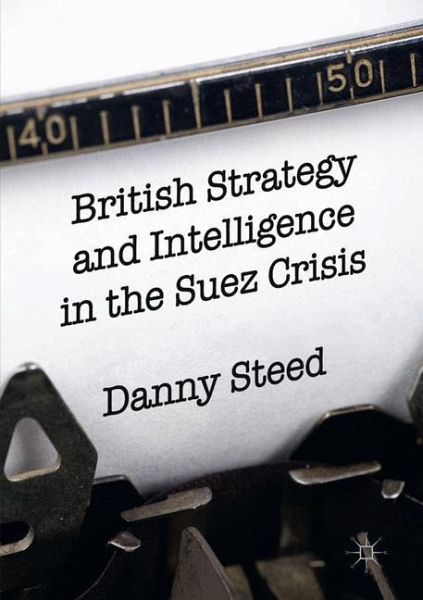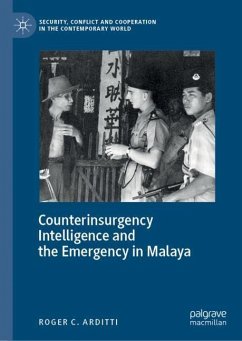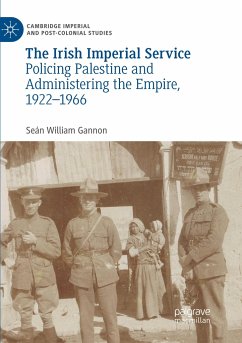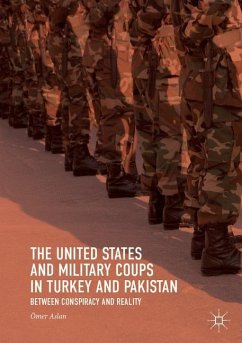
British Strategy and Intelligence in the Suez Crisis
Versandkostenfrei!
Versandfertig in 6-10 Tagen
68,99 €
inkl. MwSt.
Weitere Ausgaben:

PAYBACK Punkte
34 °P sammeln!
This book traces the activities of the Secret Intelligence Service (SIS/MI6) and the Joint Intelligence Committee (JIC) during the Suez Crisis, one of the most infamous episodes of British foreign policy. In doing so it identifies broader lessons not only about the events of 1956, but about the place of intelligence in strategy itself. It provides both an exploration of the relationship between intelligence and strategy at the conceptual level, and also a historical account, and strategic analysis of, the performance of the Joint Intelligence Committee and the Secret Intelligence Service durin...
This book traces the activities of the Secret Intelligence Service (SIS/MI6) and the Joint Intelligence Committee (JIC) during the Suez Crisis, one of the most infamous episodes of British foreign policy. In doing so it identifies broader lessons not only about the events of 1956, but about the place of intelligence in strategy itself. It provides both an exploration of the relationship between intelligence and strategy at the conceptual level, and also a historical account, and strategic analysis of, the performance of the Joint Intelligence Committee and the Secret Intelligence Service during this time. Focusing on the period immediately before, during, and after the crisis, Danny Steed brings together a complete picture of intelligence story in Britain that has so far eluded comprehensive treatment in the Suez historiography. Through extensive consultation of declassified archival sources, a re-examination of often referred to sources, and the employment of oral history, this study identifies the most significant lessons about the use of intelligence revealed by the Suez Crisis.












